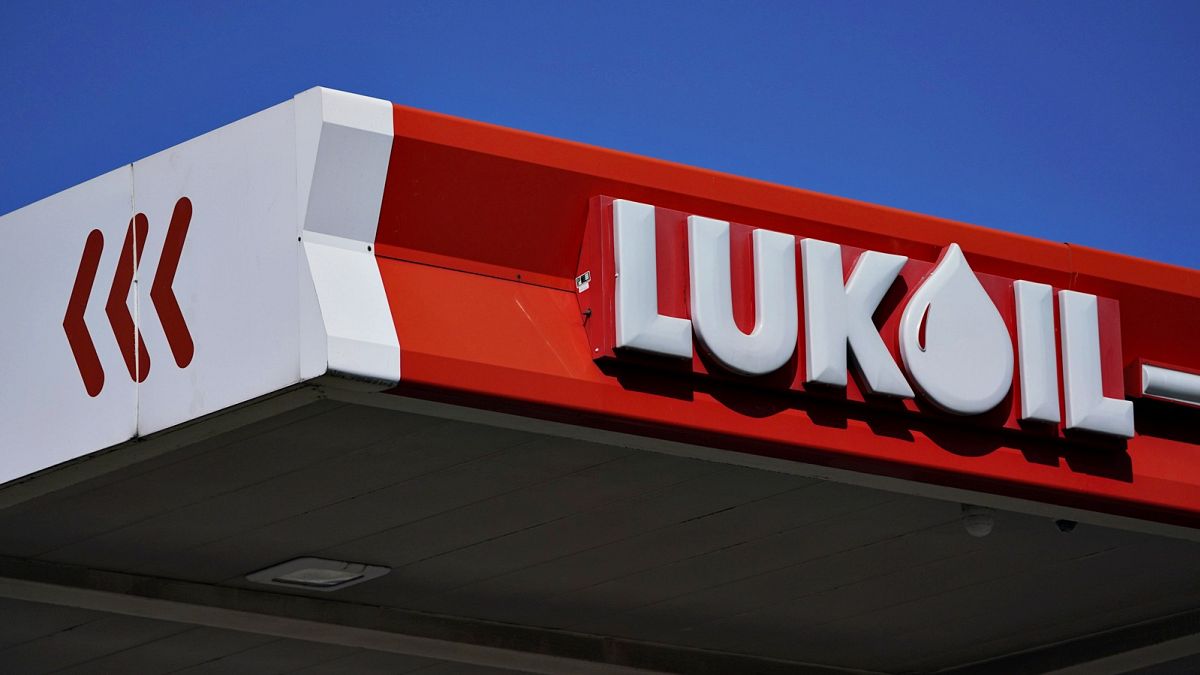Hungary and Slovakia are threatening to take Ukraine to court over the country’s decision to restrict the oil supplies of the Lukoil company.
The European Commission is prepared to mediate in the spiralling dispute between Hungary and Slovakia, on one side, and Ukraine, on the other, over the latter’s decision to strengthen sanctions against Lukoil, a Moscow-based corporation, and consequently restrict the transit of Russian crude oil through its territory.
Kyiv argues the penalties are necessary to curtail the Kremlin’s revenues that sustain the military invasion, now well into its third year. But Budapest and Bratislava have furiously snapped back, complaining the disruption in energy supplies threatens their economies.
In a joint letter, both countries have asked the Commission to intervene and launch a consultation procedure under the EU-Ukraine Association Agreement. Brussels has acknowledged the petition and insists any proceedings, if any, will be initiated by the executive itself, which has exclusive competence on commercial policy.
“We are currently studying the contents of this letter and gathering more information before taking any decision,” a Commission spokesperson said on Tuesday. “At the moment, there is no immediate impact on the security of oil supply to the EU.”
A meeting of the trade policy committee will take place on Wednesday at the request of Hungary and Slovakia, which will help to “assess the facts.”
“The Commission stands ready to support the impact on member states and find a solution together with Ukraine,” the spokesperson added, noting Kyiv will also be involved in the discussions.
The joint letter was sent on Monday as the bloc’s foreign affairs ministers gathered for a meeting with the Russian aggression at the top of the agenda. Hungary’s representative, Péter Szijjártó, used the occasion to raise the topic with his peers.
“We have told Ukraine’s authorities that it has been an incomprehensible, unacceptable and unfriendly decision,” Szijjártó said in a statement.
“It is strange that a country aspiring to be integrated with the EU is seriously jeopardising the energy supplies of two member states.”
His Slovak counterpart, Juraj Blanár, was equally critical and said the restrictions placed on Lukoil supplies represented a “clear violation” of the Association Agreement.
“We refuse to be a political tool,” he wrote on Facebook. “We will resolutely defend ourselves and use all the possibilities of European law.”
With tensions running high, Hungary and Slovakia warn that if the EU-led mediation fails to deliver a satisfying answer, they will take Ukraine to court.
Hungary and Slovakia are, together with Czechia, exempted from an EU-wide ban that prohibits the purchase of Russian crude oil. The derogation, famously pushed by Viktor Orbán in a high-stakes summit, allows the three landlocked states to receive oil supplies through the Druzhba pipeline, which travels from Russia to Central Europe.
Lukoil is the main player along the pipeline but not the only one: Tatneft, Gazprom Neft, Russneft and other small-sized firms also use the route. According to Reuters, the pipeline’s southern branch carries about 250,000 barrels of Russian oil every day. The top buyer is the MOL Group, which operates refineries in Slovakia and Hungary.
“The EU sanctions, which we have disputed on several occasions, and which in this case have again been shown to have a greater negative impact on Slovakia and the EU than on Russia itself, clearly state that Slovakia has an exemption for oil imports until the end of the year,” Blanár said in his statement.
“The Ukrainian side has prevented us from exercising this exemption.”
The spat comes on the heels of Orbán’s self-styled “peace mission,” a series of unannounced visits that saw the Hungarian premier travel to Kyiv, Moscow and Beijing to discuss an end to the Ukraine war. His meeting with Vladimir Putin proved enormously controversial and has fuelled a growing boycott against Hungary’s six-month presidency of the EU Council, which began on 1 July.
In an interview with local media, Szijjártó linked the oil dispute with Hungary’s protracted veto on EU military assistance to Ukraine, which has prevented the release of €6.5 billion in reimbursements that other member states are due.
“As long as this issue is not resolved by Ukraine, everyone should forget about the payment of the €6.5 billion in compensation for arms transfers,” Szijjártó said. “Because what would the payment of €6.5 billion look like? We contribute while Ukraine threatens the security of our energy supply.”

